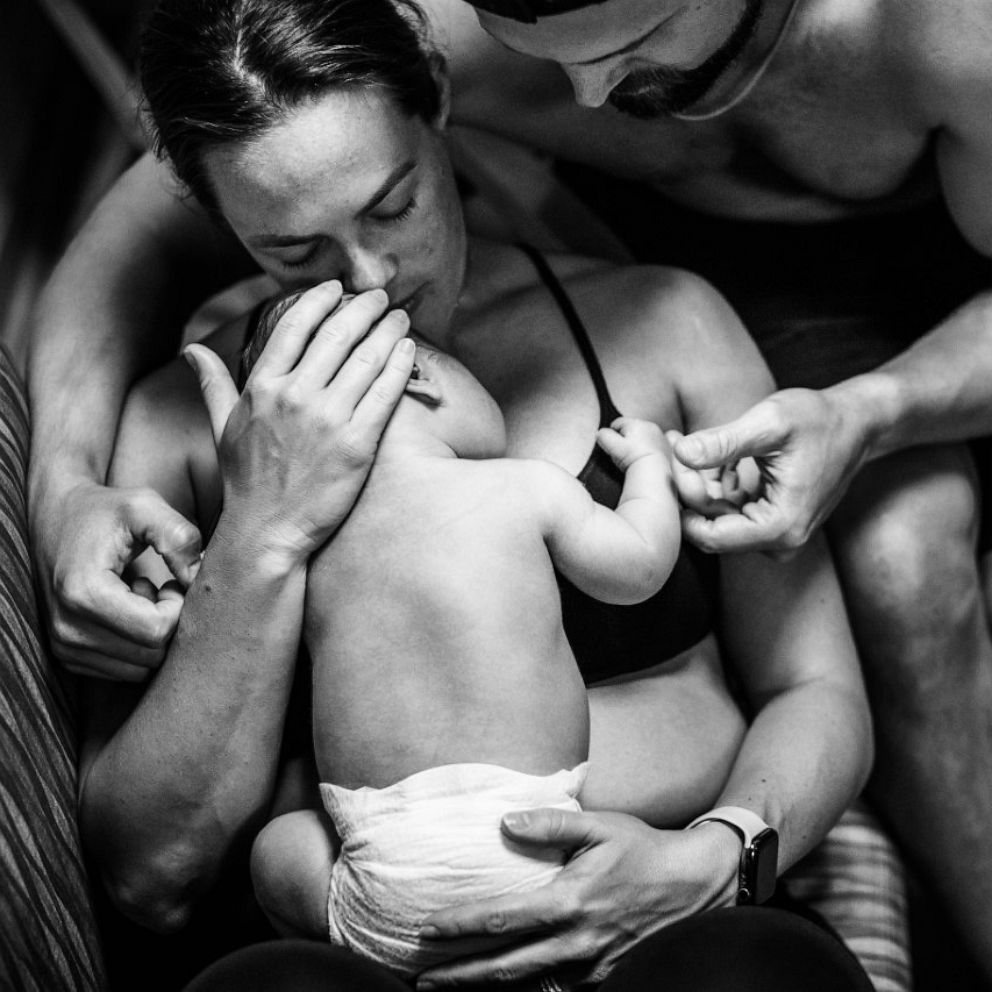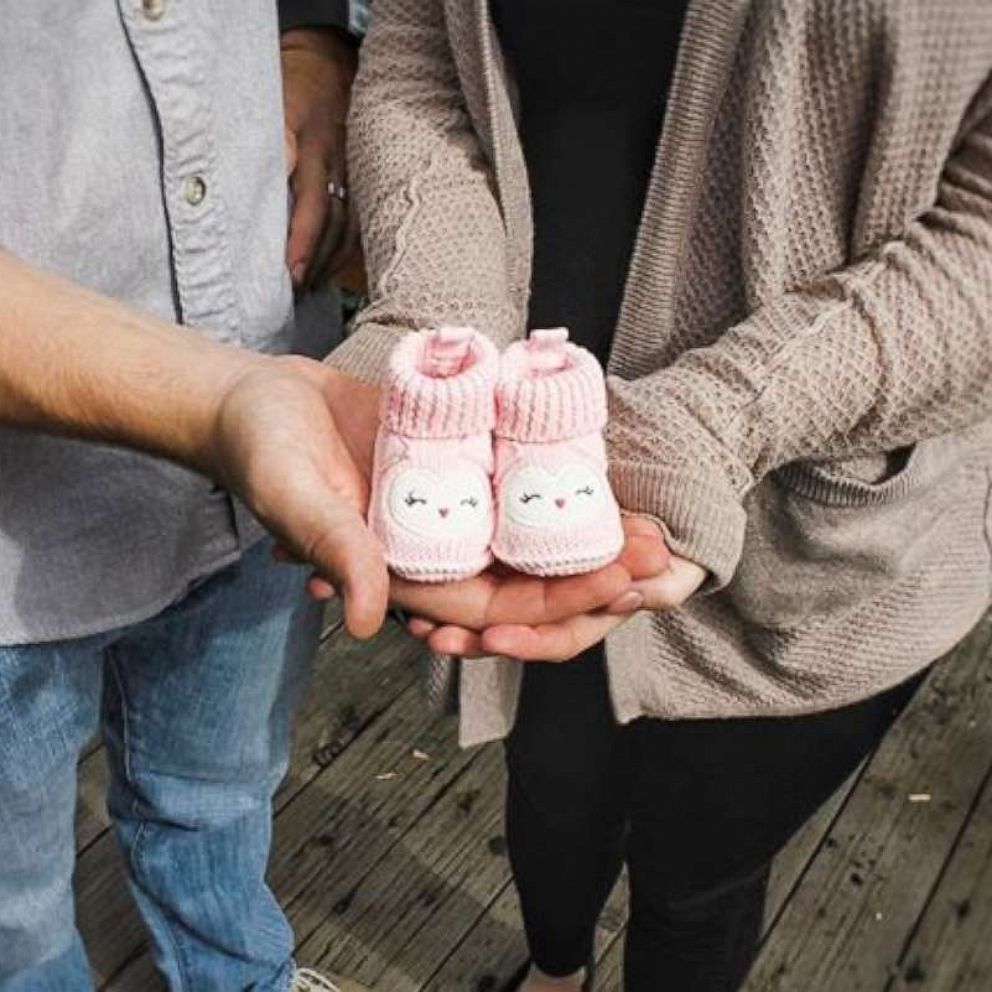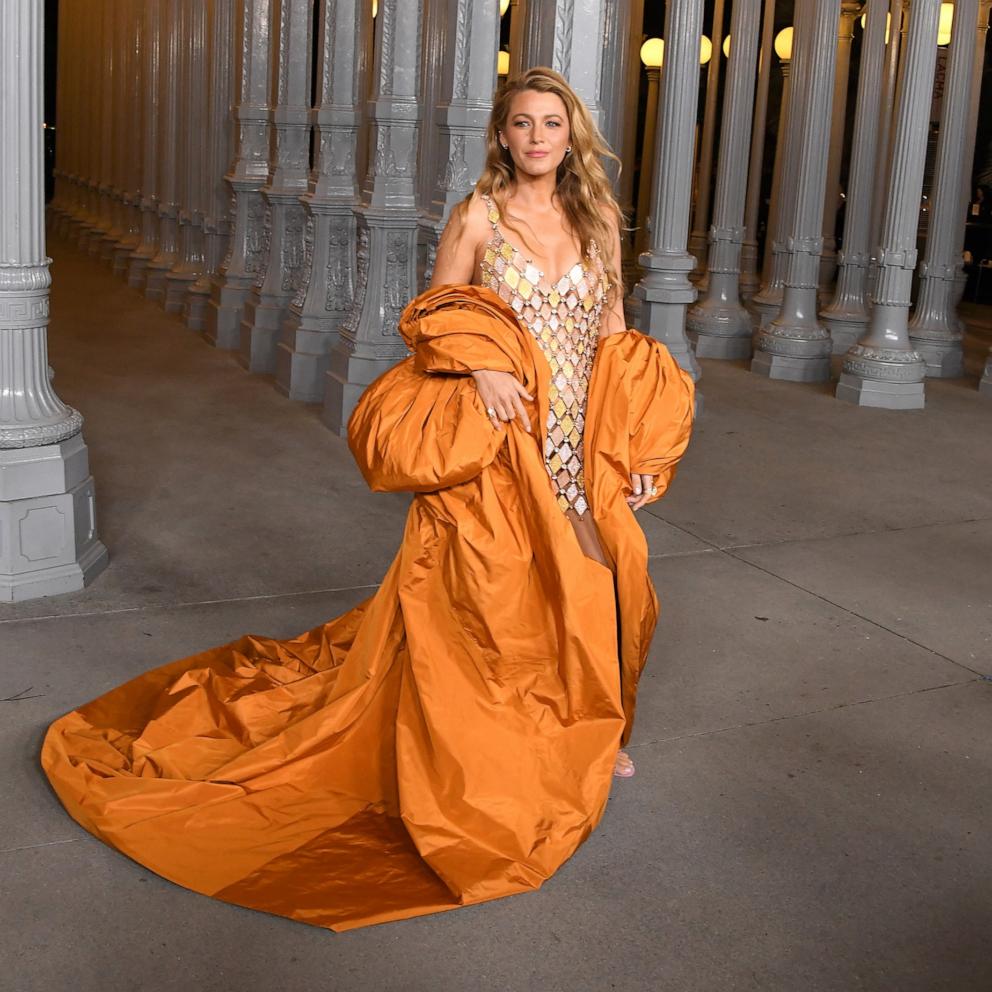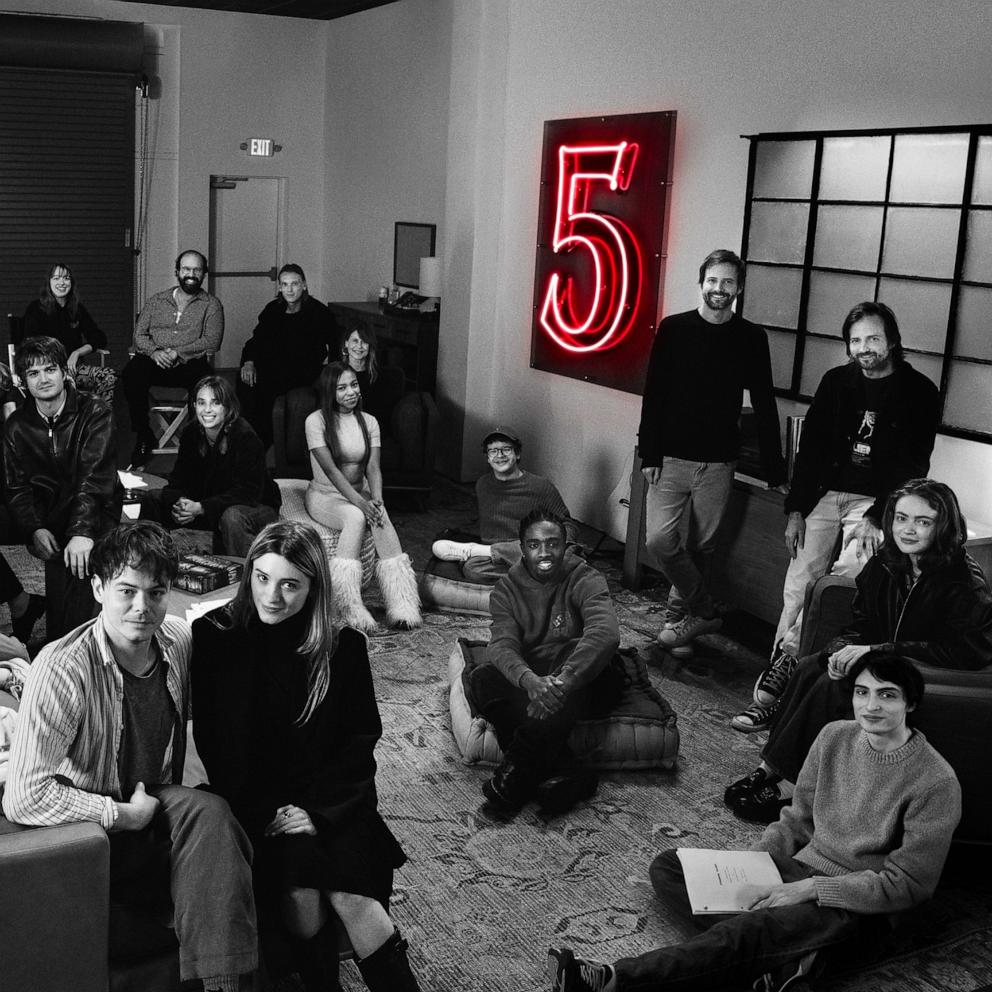'Real Housewives' star Kara Keough Bosworth speaks out about infant loss and grief
Former "Real Housewives of Orange County" star Kara Keough Bosworth's life was forever changed when her newborn son, McCoy Casey Bosworth, died on April 12.
During his birth six days prior, McCoy experienced shoulder dystocia and a compressed umbilical cord, which caused severe brain damage. After days of tests, Bosworth and her husband, former professional football player Kyle Bosworth, learned that their baby was unlikely to ever gain consciousness.
"I've been lucky to hear from parents that are on the other side of it, or as far on the other side as you can be, and they say it gets better," Bosworth told "Good Morning America" earlier this year. "They say eventually the waves of grief don't feel like they're knocking you over every day, and that you have to just get through it — but that you aren't alone."
Now, Bosworth wants to be a support for other grieving parents. In honor of National Pregnancy and Infant Loss Remembrance Day on Oct. 15, she wrote a letter reflecting on her experiences and what it means to be a member of a club "no one wants to be a part of."
To My Fellow Loss Mom,
I wish there was something else I could call you, something else I could call myself. "Angel Mom" feels too fluffy, and "Bereaved Mother" sounds like we should be wearing black lace and howling on our knees in a stone church somewhere. Don't get me wrong, we're absolutely still howling. But we're doing it in yoga pants. Lululemons just do a better job of hiding our postpartum bellies and helping us avoid questions like, "When are you due?" or worse, "How's the baby?!" That's one thing even grief counselors don't warn you about: how you'll have to break the news of your child's loss to strangers, insurance agents, employers, acquaintances, TSA agents, everyone.
The fact that the rest of the world keeps spinning the day after ours stops feels like a personal attack. How can people have baby showers at a time like this? How are weddings still happening when our hearts are this broken? We should be labeled with a sticker that reads "FRAGILE: Handle with care," because we're one trigger away from racing back to that worst moment. For some, that worst moment has a soundtrack: "There's no heartbeat." For some, like myself, that moment stretches over the course of six days. For most, it's the moments before the moment — the "if I had only," the "if I could have just," or the "why didn't I?" These questions plague all of us, the ones we ask ourselves and others, the desperate plea: How could I have saved my baby? We blame ourselves, not because we did anything to harm our children, but because we're their mothers, and protecting them is our most sacred duty.
People say the wrong things and people say right things that feel wrong. The "at least you know you can get pregnant," or the "I wouldn't be standing if I were you" are the wrong things. Talk of "God's plan," "your strength," and the "I haven't stopped crying for you" are right things that feel wrong. Some days the right thing is a friend pulling you out of bed and handing you a cup of coffee. Other days, the right thing is just staying in bed and feeling it all. Texts become so dismissible, phone calls intrusive and FaceTime may as well be a teacher calling on us in class when we didn't do the reading. Those who show up and ask nothing are the best kinds of friends. The friends that can sit quietly with us without feeling the need to fill the silence with the "I'm sorry"s that don't bring our babies back but instead make us feel like we need to respond with, "It's OK," when it isn't.
The space where our babies should be somehow starts feeling less like a gaping hole and more like an invisible fullness as time goes on. We want to hear their names, we want to think about them and smile, we want to see them in the world around us. Milestones hit us like bricks and time feels jumbled. How has it already been so long? And who would they be today?
Every day, every minute, another mother joins us in this club. It's a club no one wants to be a part of, but the love and compassion within it are unlike any other. The instant bond that ignites between two women when we sit together in this pain is almost spiritual. Sorrow like this, grief like ours, carves profound depth into our souls. We're no longer flat, shiny objects, but we're instead embossed by our loss. Somehow more beautiful for it.
If not wasted, grief can be an incredible gift. After the initial haze, the lens through which we see the world sharpens our view. It's almost like that first victorious gulp of air after being underwater too long, so much more treasured than the sip before. In grief, the spirit of the Earth somehow reveals herself to us. Sunsets are technicolor, wind is euphoric, and rain is an echoing chorus of our hearts. Rainbows and butterflies seem to show up just for us just when we need them most.
You never know how many people love you until you experience a loss like this. Most people don't get the pleasure of realizing how treasured they are until their dying day. And in a way, we do die a little bit the day we lose a child; the old us is gone. But the new us can be better. The new us can leave pettiness where it belongs. The new us can see beauty where others might pass it by. The new us can love again, despite knowing the risk. That kind of bravery didn't exist in us before. But alas, here we are. Never moving on but moving with. Grief is like going on a bear hunt: We can't go over it, we can't go under it, we have to go through it. Squish, squash.
Yes, being a mother with empty arms becomes a strange juxtaposition. More joyful despite suffering, more alive despite death and more loving despite loss. We ask ourselves, "Where are we supposed to put all this love, all this love that we had reserved for them?" The answer becomes so clear: all around us, of course, and into them, still. Most importantly — and with no hesitations — we must put the love back into ourselves once again. Terry Tempest Williams insists, "Grief dares us to love once more."
So, to grief, we respond, "You triple dog dare me?"







